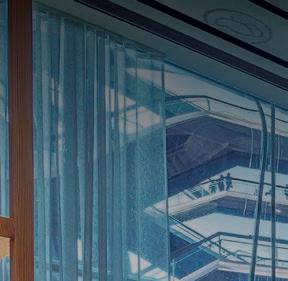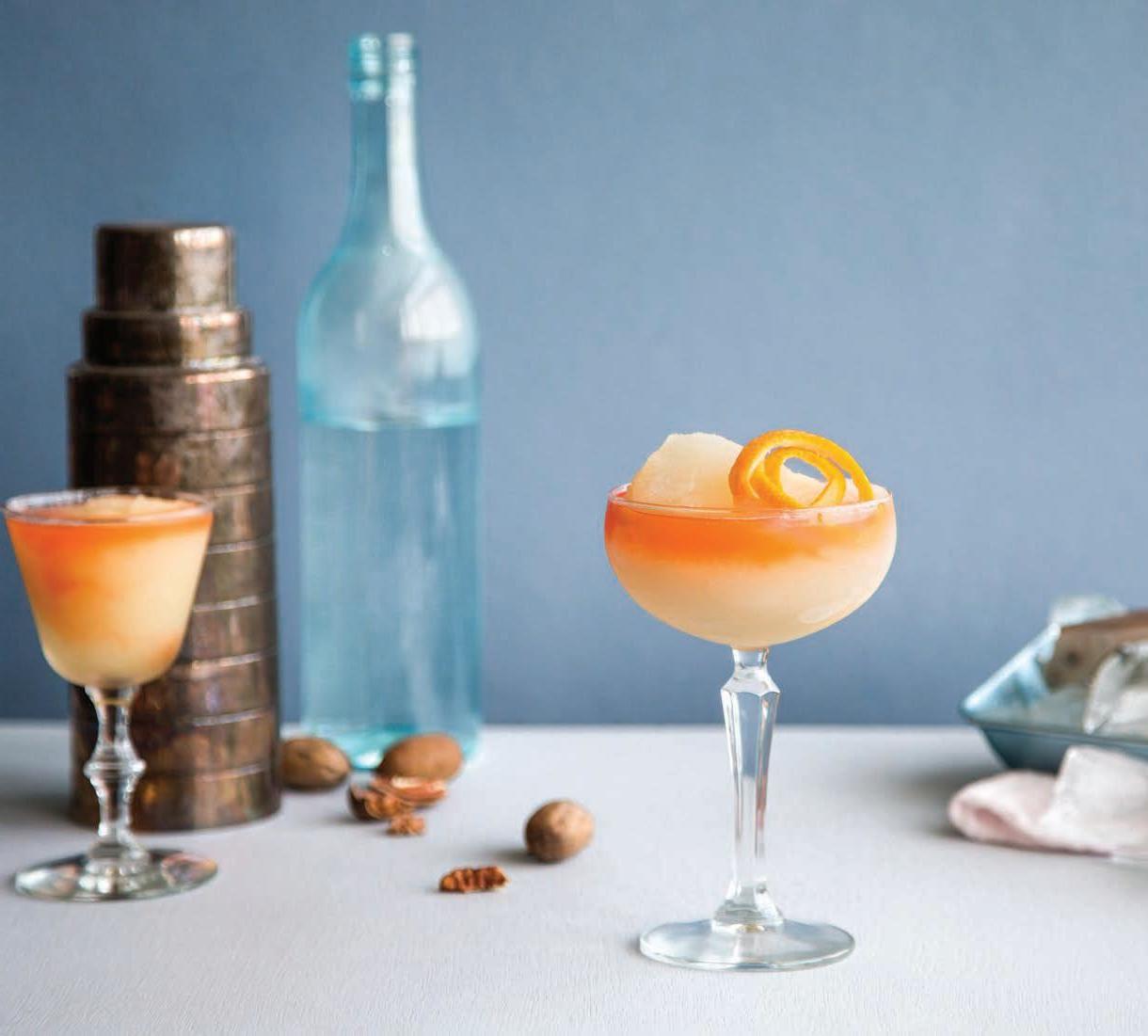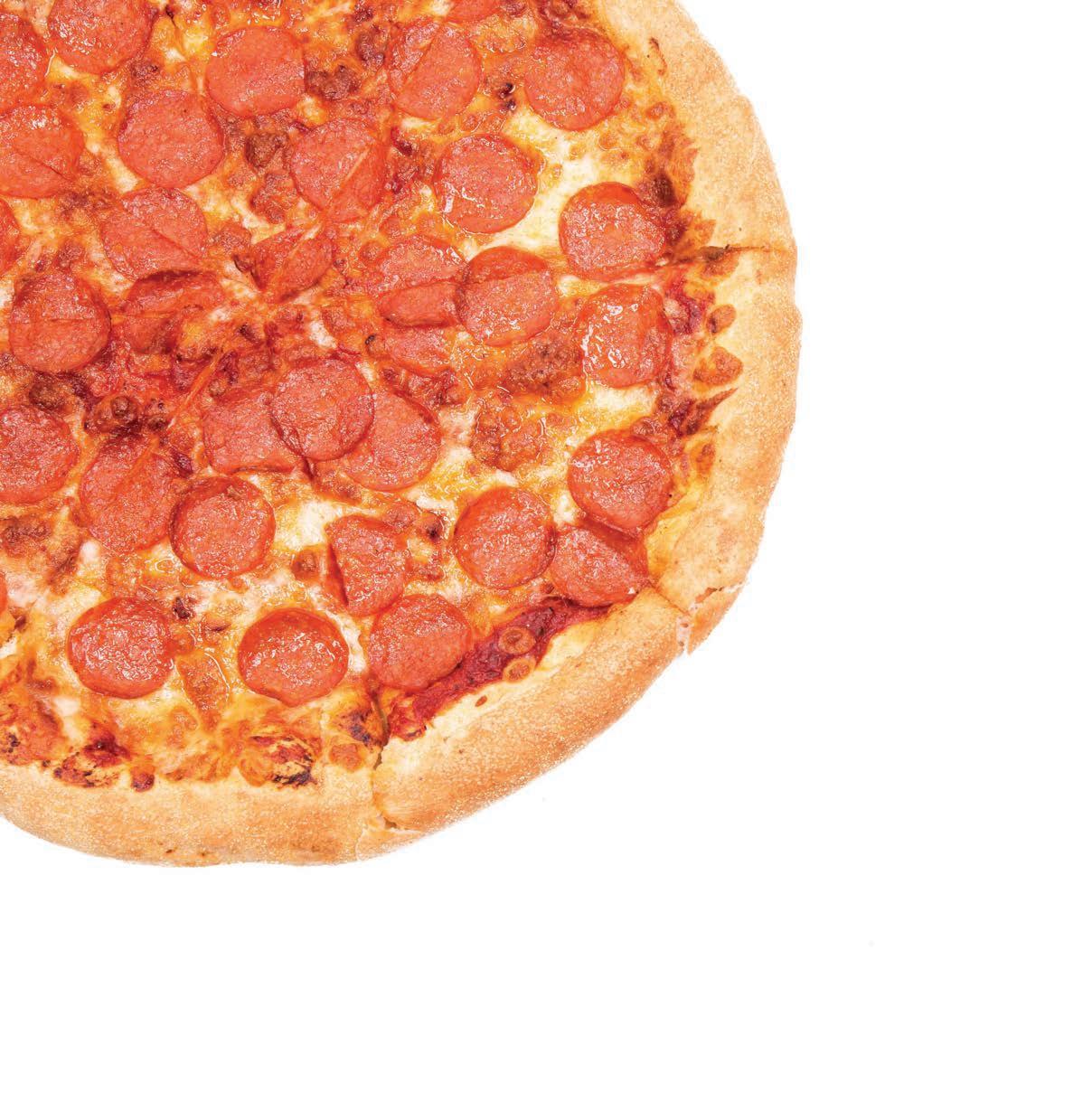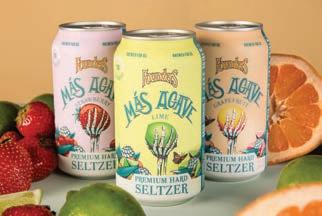
11 minute read
Good, Cleaning Living
Good, CLEAN LIVING

Advertisement



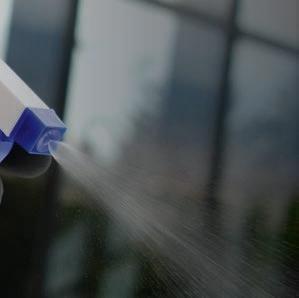


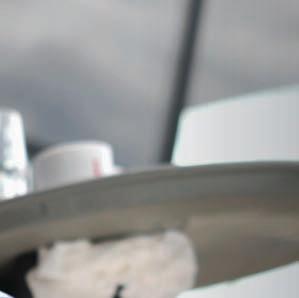
BY ELYSE GLICKMAN
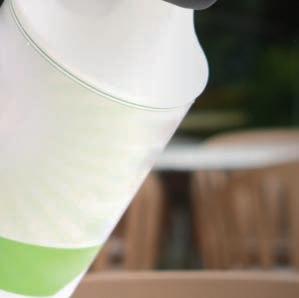

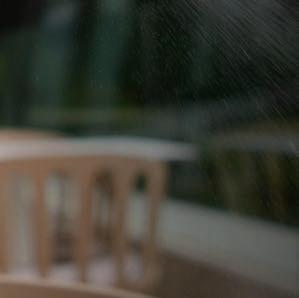
SUPPLIES, TOOLS, AND TECHNIQUES TO IMPROVE YOUR CLEANING PRACTICES.
Over the past few decades, every genre of bar rose or fell based on how effectively it delivered conversation-starting beverages and ambiance. The events of 2020, however, shifted almost every barrelated conversation. While local laws and health departments have long mandated sanitary practices and maintenance standards, more stringent enforcement is another thing that puts bars (figuratively and literally) into a life-or-death situation above and beyond profit loss.
Companies specializing in services and products to help hospitality businesses update or improve sanitizing are getting word out that their approach to a higher level of cleanliness is needed to ensure survival going forward.
“A clean workspace is not a luxury, but something that all responsible business owners need to provide for their employees,” said Gary Bauer, president of JAN-PRO, offering franchisee clients onetime EnviroShield cleaning services prior to reopening as well as a full range of products that include HEPA-rated vacuums that filter out 99.9% of particles from the air and microfiber cloths that are color coded to reduce cross contamination. “We hope that [clients] let our professionals help bar/restaurant owners and management keep their offices and facilities safer for their employees. As many standard cleaning routines alone may not provide the protection that employees now need, our advanced technology brings a definitive peace of mind, enabling them to return to work with confidence.”
Bauer points to EnviroShield’s electrostatic sprayer as the gamechanging element, allowing disinfectant to reach more areas on a microscopic level. “The disinfectant receives an electric charge, which helps it bind to surfaces and reach areas that traditional sprayers and applicators cannot,” he explains. “In combination with surface treatment that helps prevent bacteria and viruses from living on the surface, results can last up to six months.”
Even with sanitation innovation coming to the fore, however, some experienced bar industry veterans argue that effective sanitation is less about the latest gadgets and services and more about stepping up existing practices.
GUN CONTROL AND OTHER MAVERICK PRO TIPS In their restaurant/bar consultant capacity, Mixologist Tony Abou-Ganim and Chef Cory Lattuca (both noted for their culinary showmanship) are now applying their know-how to get a few important messages out. These include banning “bacteria bomb” soda guns and reminding management that no matter what cleaning agents and gadgets are out there, they’re responsible for re-enforcing what once may have been an afterthought.
“Whoever said ‘cleanliness is next to godliness’ couldn’t have been more on point with the bar business today,” says Las Vegas-based Abou-Ganim, an industry stalwart for four decades. “One of the silver linings of the COVID-19 situation is that it opened everybody’s eyes to the importance of cleanliness behind the bar. This includes everything from getting rid of the soda gun to sanitizing surfaces and seating areas between guest visits. Even when the day comes when we won’t need glass barriers separating tables and bar stools, [owners and management] will need to maintain cleaning practices they were originally required to implement when they first opened.” BY ELYSE GLICKMAN “The most important [thing about the COVID-19 sanitation push] is that nothing has changed,” argued Lattuca, now director of Training and Operations at Ignite Creative Services in Scottsdale. “Almost every restriction and recommendation that I see is already in place. It’s now just a point of emphasis. Long before COVID-19, you were never allowed to bare-handle garnishes or open a screw-off top with bare hands. However, until now, there was an ‘out-of-sight-out-ofmind’ mentality, and a few things got lost along the way for the sake of convenience. We’re getting back to basics, and everybody needs to treat everything at the bar, from the glassware to the ice to the garnishes to the straws, just like they would if they were working back in the kitchen.”
Although presentation has been a big part of customer appeal since the onset of the current “golden age” of mixology, AbouGanim points to his cousin Helen David (who operated the health code violationfree Brass Rail in Port Huron, Michigan since 1937) and Orlando-based Southern Wine and Spirits rep Armando Rosario as standard bearers of meticulous “leave it better than you found it” cleanliness.
“There are many good habits all bar workers need to pick back up that have long been required by the U.S. Bartenders’ Guild,” says Abou-Ganim. “One is the use of tongs to handle garnishes, ice, and, whenever possible, glassware. As terrible as COVID-19 is, it is my hope that people will not only re-adopt these common sense practices but mandate them behind the bar and throughout the venue.”
Abou-Ganim leads the charge by showing his restaurant clients how cleaner practices can be worked into showmanship in presentation. Beyond putting sanitizer on the glass washer and using ice made with purified water run through a reverse osmosis system, replacing the soda gun with high-end bottled sodas provides guests a “VIP/club service” experience while ensuring fewer hands touch cocktail components and glassware.
Lattuca is a big proponent of uniting safety and style by making PPE fashionable. At some of his venues, staff wear black gloves that look like a “cool, intentional part of the uniform.” When done thoughtfully, converging sanitation and service enables bars to deliver a higher quality product while instilling customer and employee confidence.
“It’s all about building habits and getting [staff] to automatically do things,” says Lattuca, who mentions handwashing, sanitizing the counter, and changing out barware. “After a while, it should just becomes a force of habit.”
While Abou-Ganim and Lattuca agree that not a lot has changed overall with cleaning agents and practices, what has changed is the emphasis on doing everything properly. In other words, if a manager is concerned about what may come up when a health inspector visits, chances are they need to rethink the way they approach sanitation. According to Lattuca, cleaning fluids need to rest on a surface (rather than having somebody dry it off quickly) to allow them to do the job. Abou-Ganim says that the right cleaning chemical, when diluted with some water, reassures customers that they’re walking into a clean, safe environment.
Peter Klamka, founder of MORE Management (encompassing a membersonly nightclub and some restaurants), took it upon himself to push bar consulting services to the next level by creating MORE Health, a concierge service for hospitality professionals in need of answers to their COVID-19 questions. Klamka retained the services of medical doctors— including some affiliated with Yale Medical School and Johns Hopkins with significant experience treating COVID-19 patients and advising state and local governments on reopening policies.
“The nightclub business as we know it is probably finished,” says Klamka. “Until there’s a vaccine, there’s likely no way to put 1500 kids inside of a club, with bottle service and music, all pushed together next to each other. Although having outdoor and take-out service helped me get by, the

fact is that allowing indoor dining is sort of like playing Russian roulette.”
The genesis for MORE Health came to Klamka during the first lockdown, when he and his fellow restaurateurs were looking for information on how to safely reopen. He reached out to local officials for guidance and was frustrated when he received the same CDC materials toting the usual social distancing, handwashing, and mask wearing.
“As the existing information out there was not enough, and there was no rescue squad coming, we were left on our own to figure this out,” says Klamka. “When you as a business person are responsible for the safety of your workers, your customers, and your family, the answers need to come from those who can give you realistic advice on cleaning practices and doing better than just passing health department inspections.”
(FLUID) OUNCES OF PRECAUTION Stephen de Haan, founder and CEO of Atlanta-based Red Phone Booth Hospitality Group, LLC, would argue that more is more when it comes to being able to bring guests and employees back with confidence. He turned to Global Plasma Solutions to install Needlepoint Bipolar Ionization (NBPI) technology—also found in some of the nation’s most prominent hospitals. It purifies the air in his bars and restaurants by eliminating airborne particulates, odors, and pathogens and by eradicating viruses, mold spores, and bacteria. He also added an extra level of sanitation by using MonoFoil-D, a nanodisinfectant fog covering an entire venue and continually disinfecting for 30-90 days. To assure proper social distancing, he worked with OpenTable to refine his bar’s reservation system and accommodate guests for staggered arrivals.
Even with all that ground covered, de Haan can’t take anything for granted. “It is important to us to know that all the ‘touch points’ in our facility are continually being cleaned,” he says. “Since this is an airborne pathogen, it will settle on different contact services whether you’ve just cleaned it with bleach or Lysol or not. Once the product dries, it is no longer killing that virus or bacteria. By utilizing a system such as MonoFoil-D, we felt it would provide additional assurance that surfaces would continually be disinfected, reducing the possibility of transmission. We’ve also incorporated these precautionary measures into our opening and closing procedure with all of our venue’s touch points, including every tabletop, door handles, and door knob. It’s reassuring to know that we’re doing everything we can to provide everybody the safest environment possible.”
As the Red Phone Booth is a cigar lounge, de Haan points out that its concept put it “five steps ahead of most indoor businesses” by having a 100% direct outdoor air system.
“We’re turning over the air once every six minutes for the entire facility,” he continues. “To take things further, we really studied two different products to enhance this process. We looked at UV light and needlepoint BiPolar ionization (NTBI), which is 100% ozone-free that was shown effective against other viruses aside from COVID-19 well before this outbreak ever started. We pulled together the financial funds to have this installed on all of our HVAC systems. From there, we brought in an additional seven air purifiers to be prepared when we go back to being cigar-friendly.”
MORE CLEAN-CUT SOLUTIONS Tim Chatfield, co-founder & CEO of Jitjatjo, advocates for small, handheld, electrostatic sprayers like the company’s EPIX 360, which can easily be leveraged by bar/restaurant operators. While this form of electrostatic technology itself isn’t
new, technological advancements allow users to increase effectiveness and use significantly less chemicals—reducing costs and providing a safer environment for employees and guests. The company’s newest program, CleanDisinfect, specializes in supplying on-demand, certified cleaners in New York City, Chicago, and Washington D.C.
“Given new data showing asymptomatic people can unknowingly carry and spread the virus, the staff should work under the assumption that everybody could be sick,” cautions Chatfield. “With that as a starting point, front- and back-of-house staff should take every precaution to prevent themselves from getting infected. Operators need to create, communicate, and enforce simple but effective protocols for the staff to follow in addition to ensuring staff are wearing appropriate PPE. Secondly, operators need to train and re-train on these protocols on a regular basis.”
Chatfield adds that one of the most overlooked areas is the restroom, as it can be the most heavily trafficked area in an

establishment. When paying extra attention to high-touch points, he suggests investing in his company’s Antimicrobial Shield once a month, applied via electrostatic sprayers. When bonded to hard surfaces, it provides additional protection between regular disinfectant wipe-downs by forming a protective shield against viruses and bacteria.
Another option, AtmosAir Solutions’ Bipolar Air Ionization systems, continuously works through a venue’s air conditioning system. Tony Abate, AtmosAir’s Vice president and chief technical officer, explains that the system restores the air’s ionic balance to keep the air disinfected. “The ions flood into the space like little Pac-Men, eating up all of the contaminates such as viruses, odors, and gases and breaking them down,” he says. “However, operators still need to stay on top of other methods that require active participation among the members of the staff, such as controlling traffic patterns inside of spaces, the enforcement of the mask wearing policy, and

administration of the daily disinfecting process. You also need to put on your detective hat and imagine yourself as a patron and think about surfaces you may encounter. From there, you can target your disinfecting and cleaning effort.”
Anybody seeking deeper cleaning can turn to a service like BioRecovery.com, a nationwide disease and biohazard cleanup company currently using Benefect Decon 30 for all COVID-19 cleanups.
“It is a nontoxic, totally safe, and 100% natural thyme oil-based alternative to many industrial-grade cleaning products,” says Kevin Geick, a manager at the firm. “Regular, scheduled cleanings are our focus when offering training to bar staff on disinfection techniques. Many of them are already experienced in general cleaning techniques, so the key here is simply researching the best new products to use, and the frequency at which to use them.”
To read more about cleaning, visit barbizmag.com


